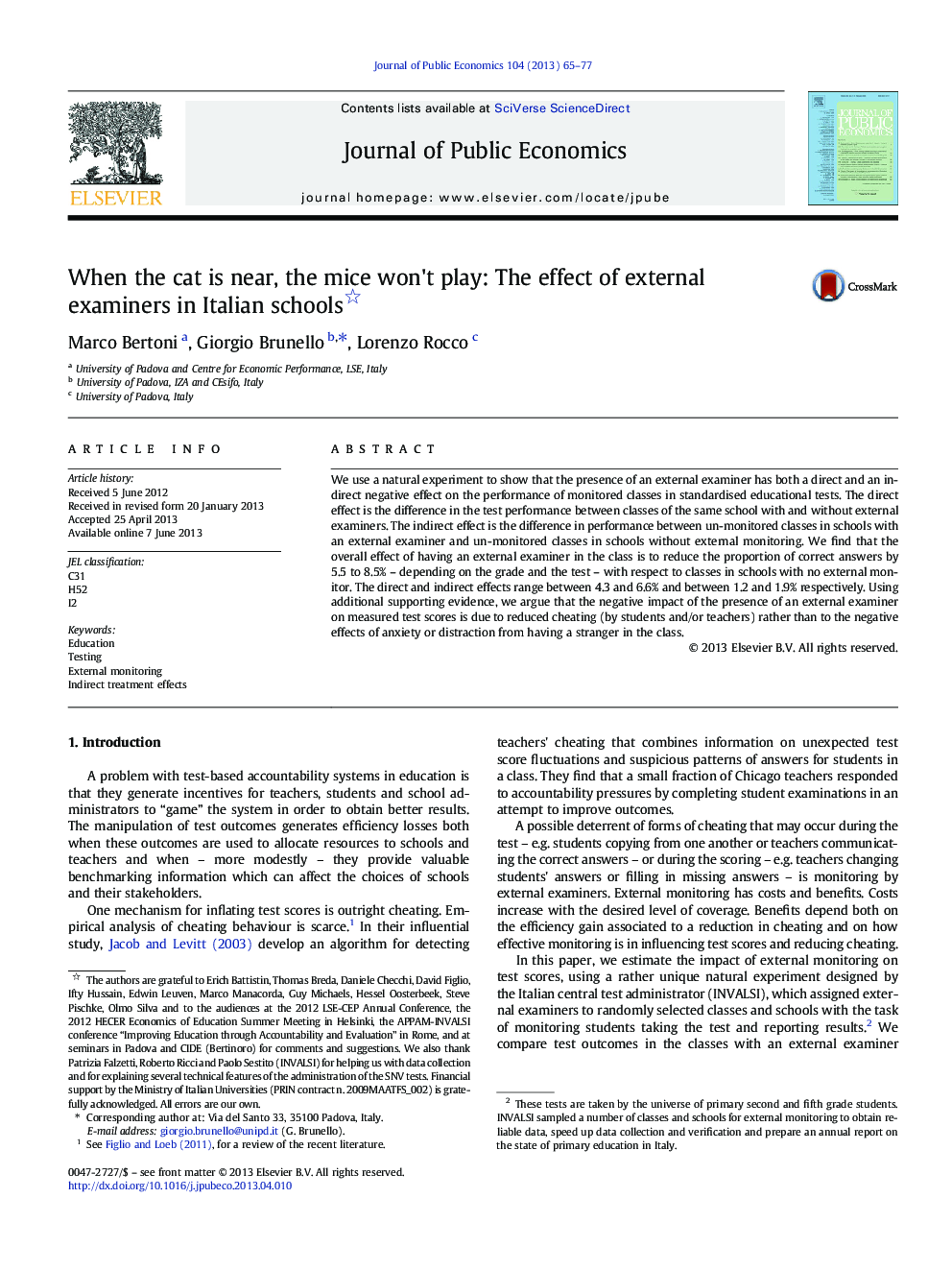| Article ID | Journal | Published Year | Pages | File Type |
|---|---|---|---|---|
| 969832 | Journal of Public Economics | 2013 | 13 Pages |
•We use a natural experiment in the context of standardized tests in Italian schools.•We assess the effect of external examiners in class during standardized tests.•This presence reduces the proportion of correct answers in monitored classes.•The effect of external monitoring spills over to other classes in the same school.•The negative effect of external supervision is likely due to reduced cheating.
We use a natural experiment to show that the presence of an external examiner has both a direct and an indirect negative effect on the performance of monitored classes in standardised educational tests. The direct effect is the difference in the test performance between classes of the same school with and without external examiners. The indirect effect is the difference in performance between un-monitored classes in schools with an external examiner and un-monitored classes in schools without external monitoring. We find that the overall effect of having an external examiner in the class is to reduce the proportion of correct answers by 5.5 to 8.5% – depending on the grade and the test – with respect to classes in schools with no external monitor. The direct and indirect effects range between 4.3 and 6.6% and between 1.2 and 1.9% respectively. Using additional supporting evidence, we argue that the negative impact of the presence of an external examiner on measured test scores is due to reduced cheating (by students and/or teachers) rather than to the negative effects of anxiety or distraction from having a stranger in the class.
